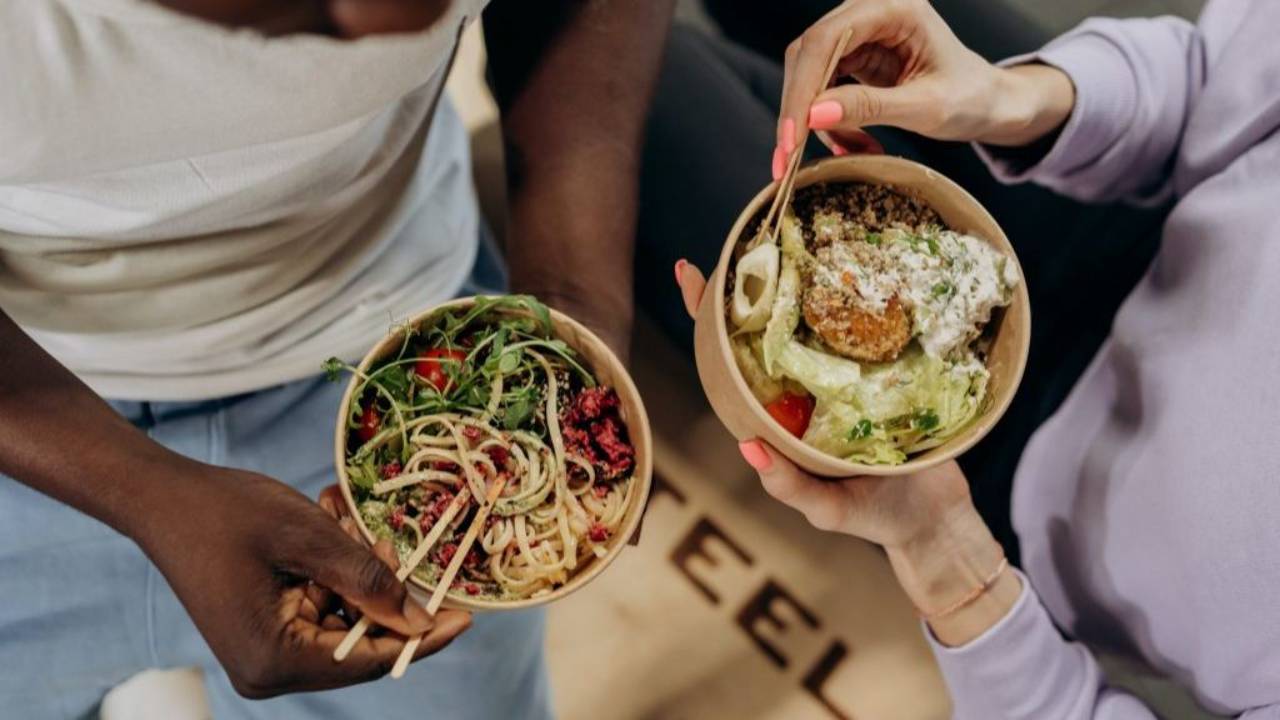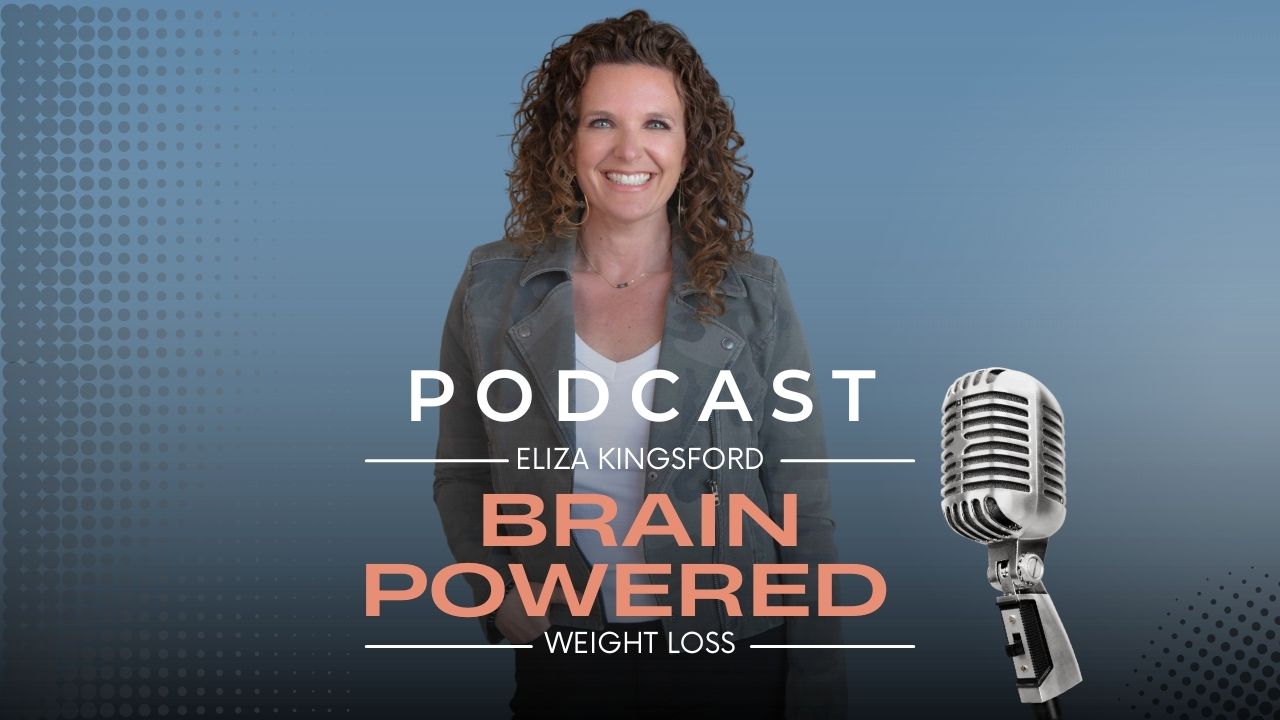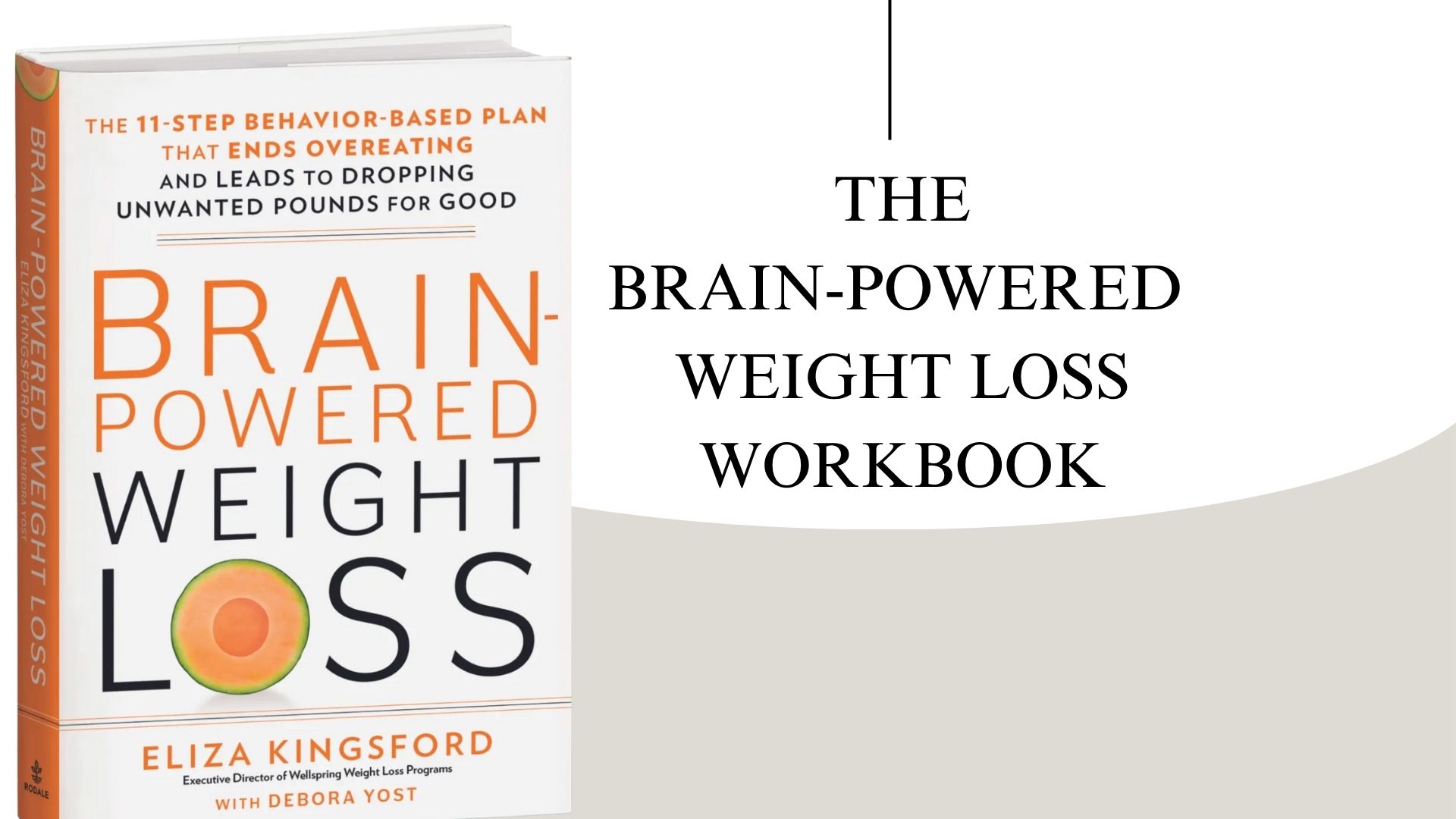
My Thoughts on Intuitive Eating: Does It Really Work? (Part 1)
Oct 26, 2022Lately, I have been talking about intuitive eating versus (what I call) intentional eating. Many of you (in my community) have asked me my stance on intuitive eating; if I hate it and if I’m anti-intuitive eating. For this reason, I think it’s important to share my thoughts on intuitive eating with you.
I want to emphasize this is MY view. It's really important for me that you understand that. This is not the “right” view or the only view, this is not my attempt to get you to change how you feel, to come over to ‘my’ camp, or to pick a side. It is simply my view, from my lens, through my experience. I invite you to take what feels aligned for you and leave the rest.
The long-short of my view of Intuitive Eating is this: there are some good principles in the methodology, but as a whole, I think it’s only useful for a small subset of people.
What is Intuitive Eating?
Intuitive eating (IE) became really popular in the 1990s when two dieticians, Evelyn Tribole and Elyse Resch came out with their book: Intuitive Eating: A revolutionary program that works.
After having worked with people who were struggling with food and body, primarily in the eating disorder space, Resch and Tribole came up with a method of addressing food and our relationship to food that they called “intuitive eating.” Intuitive Eating (IE) became a philosophy for how to approach food and has gained popularity over the past couple of decades.
I have found that IE is most revered and very popular with the eating disorder community. This doesn’t mean it is not helpful outside of eating disorders, but I find that the people who are really passionate about it (and angry about “diet culture”) generally come from a history of eating disorders. That's an important point to consider but it’s not a blanket statement about the utility of IE.
The backbone of intuitive eating is its 10 intuitive eating principles.
Principle #1: Reject the diet mentality
Principle #2: Honor your hunger
Principle #3: Make peace with food
Principle #4: Challenge the food police
Principle #5: Feel your fullness
Principle #6: Discover the satisfaction factor
Principle #7: Cope with your emotions without using food
Principle #8: Respect your body
Principle #9: Exercise - feel the difference
Principle #10: Honor your health - gentle nutrition
I like the idea of many of these principles. They make sense at first glance; making peace with food, challenging the food police, discovering the satisfaction factor, coping with your feelings without using food, respecting your body, exercising, and honoring your health. However, I don’t subscribe to the same black and white thinking about diet culture as IE does (more on that later).
This is a good spot for an important disclaimer. If you have dabbled in IE and it is working for you, amazing! As you’ll always hear me say, you need to find what works for you. And if you have a relationship with intuitive eating that is working and you feel like the highest and best version of yourself, amen. I would never ever ask somebody to change something that's working for them.
That being said, I have had many clients come to me saying they feel “worse” and “more out of control” after trying intuitive eating and, most importantly, they still don’t feel comfortable in their bodies.
So let’s dive in a little deeper.
Intuitive Eating vs. Intentional Eating
Listed above were the 10 intuitive eating principles. There are many principles I agree with and a few of which I have differing views and opinions on.
On the surface, these principles all sound wonderful, right? Why wouldn’t you want to do all of these things?! I would say perhaps my biggest issue with the Intuitive Eating methodology is their claim that you cannot BOTH use these principles AND be working towards intentional weight loss. Their claim is that in order to be an intuitive eater, you must reject the idea of intentional weight loss altogether. You are, quite literally, not allowed to be in the IE club and want to lose weight. The claim is that if you have the desire to lose weight, you can’t use the principles listed above.
A quote from the book Intuitive Eating says, “We must change our paradigm to reject dieting. Only then can we change our relationship to food and our bodies”. See what happened there?
In other words “the only way you can feel good with food and your body is if you do it MY way” (in this case, “MY” way is to reject the diet mentality altogether). This type of black and white statement leaves people feeling trapped. What if I want to lose weight? What if using a program to help with my food choices makes me more comfortable? Does that mean I don’t have access to changing my relationship with food and my body?
Does this sound familiar to you? Do it my way or you won’t be able to be happy? It’s the very same hook that intuitive eating lambasts “dieting” culture for peddling.
Here is another sticky example for me. In The workbook for intuitive eating, there is an intuitive eating assessment scale. This assessment scale is used to determine if you have a “problematic relationship with food”. Here is what the workbook states “each yes statement indicates an area that likely needs some work.” indicating that if you answered yes to this, there's a problem.
Here are just a few of the questions from the workbook:
- I try and avoid certain foods high in fat, carbs, or calories.
- If I'm craving a certain food, I don't allow myself to have it.
- I have forbidden foods that I don't allow myself to eat.
- I don't allow myself to eat what food I desire at the moment.
- I follow eating rules or diet plans that dictate what, when, and how to eat.
Now, let's unpack this one section. IE is saying that if you say “yes” to any of these things, you have something problematic that you need to work on.
Here's the problem with that, and I’ll use myself as an example. Looking at the first question, “I try and avoid certain foods high in fat, carbs, or calories,” My answer is yes! I absolutely avoid certain foods that are high in fat, carbs, and/or calories because eating those foods on a regular basis doesn't make me feel good, and consuming those things regularly ends up bringing me to a place where I don't feel good about myself or my body. So I intentionally avoid them. The key here is that I am not bothered by this AT ALL! This is NOT problematic for me, even though I am intentionally avoiding those foods. In fact, it makes me feel empowered - to know what foods I’d rather not have and what foods feel really worth it and desirable for me.
It’s not a problem, it’s part of what keeps me healthy! It’s what I've been calling for years now, intentional eating, and that is what I stand behind.
Let’s take another assessment statement “If I am craving a certain food, I don't allow myself to have it”. I do this A LOT. If someone says “hey, do you want to go out for pizza?” my brain is always going to say “absolutely”! There’s a biological neural pathway response in the brain that will always say, “yeah, absolutely. I want a pizza(or a milkshake or a burger). I want all these high-fat, high-calorie, processed foods.” Our brain always wants foods like these! It’s the way our brain was designed! This is an evolutionary adaptation that kept us alive for millions of years. Your brain is always seeking high-energy density calories.
So, if I allow myself to have food every time my brain says ‘yes’, I'm not going to feel very good. Am I okay with that? Absolutely. You can start to see now that one of my issues with intuitive eating is that it completely denies two things.
- Your relationship with how you choose food. In other words, do I feel ok exercising my ‘no’ muscle? and
- Assumes that if you're saying ‘no’ to something that's automatically a bad thing.
Is saying ‘no’ to food really a bad thing? Absolutely not. It’s your relationship to the “no” that matters. It's important for us to understand how food acts on our brain chemistry and to intentionally say, “no thanks, not today.”
One more example of this. During the summer months, my husband, daughter, and I love walking to the ice cream shop down the street. There are always friends and family there, it’s like a summer social gathering spot. We do this AT LEAST once a week! Sometimes I have some ice cream, but a lot of times I don't. My husband and daughter both offer me a sip of their milkshakes. Sometimes I take it, sometimes I don't. It's not about the ice cream for me, it's about the experience.
I am intentionally saying no to that ice cream on purpose, because of the macronutrient/calorie content. If I ate ice cream with them once a week, it would end up bringing me to a place where I'm not feeling so great (remember it’s not just the ice cream once a week, it’s the pizza parties, the backyard BBQ’s, the dinners out, the brunches with friends, on and on). When I feel like it's really worth it and I’ve accounted for the extra macronutrient intake in my food, you're darn right I’ll have it! And I enjoy it as much as I want and then I'm done.
Some would call what I'm doing restrictive. I don’t feel restricted or deprived at all. And this is what I'm talking about. Much of intuitive eating denies your relationship to it.

Evolutionary Biology - It’s In The Research
In 2011, there was a research study out of Yale where they measured the connection between blood glucose levels and cravings for high-calorie foods.
Here’s what they did (I will oversimplify it for you). They showed participants pictures of food (some high-calorie foods that we would associate with “craving” foods, and some “normal” foods like fruits, vegetables, protein, etc.). They also measured the blood glucose level of the participants throughout the study.
Here's what they found:
When the participants' blood glucose was stable, they rated their desire for all foods about the same (the high-calorie foods did not rate statistically significantly higher). When participants’ blood glucose dropped even just a little bit (not the kind of glucose drop that causes the popular feeling of “hangry''), their cravings went up. Just a slight drop in glucose (which our bodies do all the time), the ratings for high-calorie foods went up significantly!
Also, when the body was on the downswing from a glucose spike, what did it do? It lit up the craving centers in the brain. And then those participants rated their desire to eat those foods really high.
Also, this study found that in obese individuals, the part of the brain (the pre-frontal cortex), that regulates food intake when in a euglycemic state (normal blood sugar) was not working the same way as a non-obese participant. What this meant was that an obese person was more likely to crave high-calorie foods when their blood sugar was dropping (even slightly), and less likely to be able to regulate food intake (in response to high-calorie foods) when their blood sugar was normal.
Why is this important?
According to intuitive eating, we should all be able to “listen” to our bodies' cues for hunger and satiety and if we listen well enough it will just tell us what to eat. I call BS. In the study above (this is one of the hundreds of studies), it illustrates the body’s preference for high-calorie density foods completely unrelated to “intuition” or the body’s energy needs. If you don’t understand the way our bodies are working against us from a biological perspective, you will find yourself overeating and calling it “intuition”
When you get a craving for something high in fat, or high in calories or high in sugar, that's NOT your intuition speaking.
There are numerous studies illustrating how the signals that get sent to our brain telling us when we're hungry, when we're full, how much to eat when to eat, and what types of foods we want to eat (cravings), are under biological control. What this means for you is essentially this; you can’t believe everything you think! Your signals telling you to “just eat the pizza” are NOT coming from a place of nutritional need, or even intuition.
When I answer “yes” (on the assessment mentioned) to avoiding foods high in fat, carbs, or calories, it’s because I know the signals telling me to eat all of those things are not coming from my “intuition” or my true biological needs. I know those signals are coming from outdated evolutionary biology, from the impact of the processed food industry on my brain chemistry, from stress signals, from a dysregulated nervous system, etc.
Or, if I am craving a certain food and I don't allow myself to have it, it’s because when I see a milkshake, I KNOW it’s an automatic ‘yes’ to my biology (it’s always searching for energy-dense foods). Or perhaps my glucose is down even just a little bit, it's going to increase my desire for that milkshake. That's not intuitive.
Now, you might ask, “Eliza, why would your body tell you you want a milkshake when your glucose is down a little bit?” or “Why would your biology tell you it wants energy-dense foods if it’s not really what you need?”
It’s simple, really. From an evolutionary perspective, the amount of time in history that we have had regular access to food is pretty short in comparison to the amount of time when food was scarce and we had to actively worry about starving to death. Historically, when our glucose started to drop, it was a signal to the body that we might have food scarcity. In response, it adapted to be able to turn up the signals to get you to seek food (such as your craving centers). Your body can turn up your hunger hormone and release more ghrelin so that you'll go looking for food. It can also turn down your satiety hormone so that you will eat more.
The results of these two mechanisms will make you feel more hungry and less full. This isn't intuitive. This isn’t your body’s “intuitive” way of telling you that you really need a milkshake, or that you need to keep eating more food, this is quite literally evolutionary biology. If I were to act in response to every one of my cravings, just because I was being “intuitive” about it, then I'd be consistently overeating for my body. No, thanks. That doesn't work for me.
Now let's bring it back to intentional eating. I’m being intentional when I say no to the milkshake because I know that every time we're faced with high-sugar, high-fat, high-calorie food, our brain always wants it. I’m being intentional when I say ‘no’ to certain macronutrients because I know I will feel hungry sooner if I eat too much of them (simple carbohydrates). I’m being intentional when I purposefully manage my energy intake so I am not overfeeding my body (something that is all too easy to do in our modern food environment). I’m being intentional when I limit my processed food intake because I know processed foods act on the mechanism of my brain chemistry that makes me want to eat more of them, and that doesn’t serve me.
Intentional eating has been MY way to food freedom and feeling comfortable in my body.
Let’s Wrap It Up….Shall We?
If intuitive eating is working for you, if you feel good and empowered, then DO IT!!
I am not here to dissuade you.
For the many in my community who have come to me from the IE space, frustrated and wondering “what’s wrong with me”, I want you to understand there is nothing wrong with you. I want you to understand the mechanisms undermining intuitive eating that just might contribute to you feeling like you’re “failing”.
I don't agree with much of the IE rhetoric because it does not take into account too many of the variables that dictate what we eat like our relationship with food or the biological adaptations that drive most of our eating patterns that are outdated for our current survival needs.
If you’ve been struggling with weight or body image and you want to be free of those challenges once and for all, I encourage you to consider looking into some of my programs. My groundbreaking program The Shift takes even the most stubborn and stuck dieters to a place of peace, ease, and joy. Join the waitlist here.


